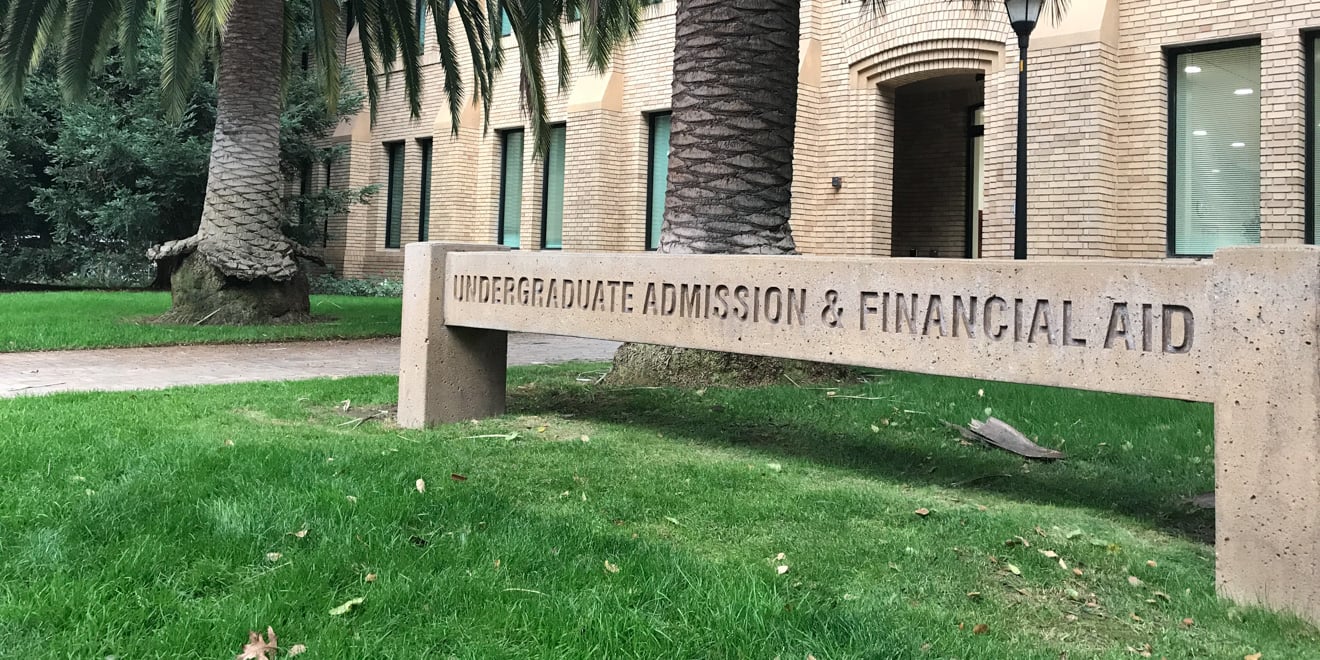The Stanford undergraduate admission office now allows students studying in U.S. high schools to self-report their standardized test scores, rather than requesting that testing agencies submit official records.
The move reflects a growing desire among admissions directors to remove monetary barriers for students applying to college. Allowing students to self-report test scores alleviates the financial burden of submitting official score reports.
The self-reporting policy is gaining favor among colleges with competitive admissions. Nationwide, universities hope to broaden the applicant pool by alleviating as many obstacles to application as possible. Stanford joins Columbia University, Williams College, University of Chicago, Washington University in St. Louis, Harvey Mudd College and dozens of other institutions that have introduced policies allowing students to self-report test scores.
The former policy, to which many other colleges still abide, asked students to request an official score report from the organizations that administer the SAT and ACT. The registration fees for these standardized tests – around $60 per test – cover the cost of sending reports to four universities within nine days of testing. However, additional score reports beyond those four or score reports ordered outside of the nine-day window are subject to a $12 fee per report. Though testing organizations allow students to apply for fee waivers for up to four additional colleges, the new policy would eliminate the hassle of petitioning for a waiver altogether.
Gracie Newman ’21 agreed that the previous official reporting process was a logistical and financial inconvenience.
“[I had to pay] $300 total for all the schools I sent my test scores to,” Newman said.
Christine Yang ’21 explained that she was daunted by the task of applying for a fee waiver.
“I [went] to a New York private school,” Yang recalled. “At a public school, [the school’s counselors] help you apply for a fee waiver because the government assumes you need it.”
However, after asking her counselor to help her apply for a fee waiver, she did not receive any further support. The College Board website states students should get their school’s sponsorship for fee waivers.
“If your school doesn’t take action, you really can’t do much on your own,” Yang said.
In addition, according to Mike Devlin, associate dean and director of admission at the University, accepting self-reported test scores allows Admissions to “be more efficient in the processing of files.”
Official score reports will not be required until the student is admitted and chooses to enroll. At that time, the University will confirm the veracity of the self-reported scores prior to enrollment.
“Students who misrepresent their test scores during the admission process can have their decision revoked,” Devlin wrote in an email to The Daily.
Despite the move to alleviate financial burdens regarding test scores, Stanford still tops U.S. News’ list of universities with the highest student application fee, charging $90 per applicant. Devlin does not foresee any changes to this cost.
“Stanford is committed to working with any student who needs an application fee waiver if the fee represents a financial burden,” Devlin wrote.
Contact Alex Tsai at aotsai ‘at’ stanford.edu.
